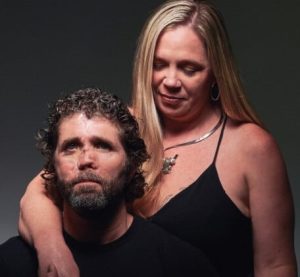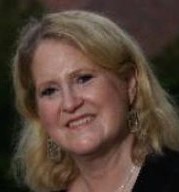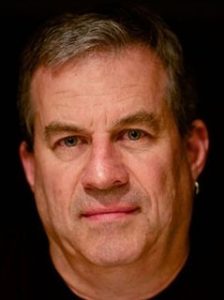EP 872 Military Marriages Present Unique Challenges
 Marriages are a 50/50 proposition in America as to whether they can survive all of the challenges couples go through. For a Navy Seal, the divorce rate is closer to ninety percent. Today, on the podcast, we talk to a remarkable SEAL couple, Jason and Erica Redman, who have written the book “Mission: Invincible Marriage: A Battle-Tested Guide to an Enduring Relationship.” When you hear their story of his heroism, involving serious injuries suffered in Iraq, requiring upwards of 30 surgeries, and her sacrifices on the home front, it will remind you that the vows ‘in sickness and in health’ do really test married couples throughout a lifetime of change, tough times and new challenges throughout. You’ll learn more about them in this podcast, but you will also ask yourself what you can do to strengthen your relationship. In their view, it all starts with friendship. Take a listen and get prepared to be inspired
Marriages are a 50/50 proposition in America as to whether they can survive all of the challenges couples go through. For a Navy Seal, the divorce rate is closer to ninety percent. Today, on the podcast, we talk to a remarkable SEAL couple, Jason and Erica Redman, who have written the book “Mission: Invincible Marriage: A Battle-Tested Guide to an Enduring Relationship.” When you hear their story of his heroism, involving serious injuries suffered in Iraq, requiring upwards of 30 surgeries, and her sacrifices on the home front, it will remind you that the vows ‘in sickness and in health’ do really test married couples throughout a lifetime of change, tough times and new challenges throughout. You’ll learn more about them in this podcast, but you will also ask yourself what you can do to strengthen your relationship. In their view, it all starts with friendship. Take a listen and get prepared to be inspired
Podcast: Play in new window | Download
 While the need for strong, loving partnerships may be more necessary than ever in this complicated moment, the truth is fewer young people are even dating as other generations have done in the past, let alone marrying in their 20’s or having families. Our guest, Aleeza Ben Shalom, host of the series, “Jewish Matchmaking” on Netflix and author of the new book, “Matchmaker Matchmaker” has some great perspective on what is happening to love, dating and marriage and freely offers wisdom about how you can be sure the person you are involved with is the right one for you. While youth romance is in decline in America, many are still looking for love and Aleeza offers some novel approaches like no touch for the first five dates and date ’em until you hate ’em. It’s a fun conversation that touches on societal trends in this important aspect of life, as well as personal advice you will find useful as you’re searching for the right partner.
While the need for strong, loving partnerships may be more necessary than ever in this complicated moment, the truth is fewer young people are even dating as other generations have done in the past, let alone marrying in their 20’s or having families. Our guest, Aleeza Ben Shalom, host of the series, “Jewish Matchmaking” on Netflix and author of the new book, “Matchmaker Matchmaker” has some great perspective on what is happening to love, dating and marriage and freely offers wisdom about how you can be sure the person you are involved with is the right one for you. While youth romance is in decline in America, many are still looking for love and Aleeza offers some novel approaches like no touch for the first five dates and date ’em until you hate ’em. It’s a fun conversation that touches on societal trends in this important aspect of life, as well as personal advice you will find useful as you’re searching for the right partner. Call centers are the hub of much activity these days as customers seek information or wish to buy things. Their role has changed over the years and the sophistication of the technology they use, the demands on them to streamline and cost cut with AI, and the supervisor ‘surveillance’ which measures their minute- by- minute activities, make the job more stressful than you might imagine. And while we, the customer or consumer, are frustrated by the requests to take everything on- line or do a ‘chat’ with an AI bot, the humans at the end of the line have their own concerns. In her book “Disconnected: Call Center Workers Fight for Good Jobs in the Digital Age”, author, labor researcher and organizer Debbie J. Goldman, Ph.D., describes the hard-fought battles of call center workers-one of the largest, yet most overlooked, labor forces in the U.S., even though it is the work home to over 4 million people in the country.
Call centers are the hub of much activity these days as customers seek information or wish to buy things. Their role has changed over the years and the sophistication of the technology they use, the demands on them to streamline and cost cut with AI, and the supervisor ‘surveillance’ which measures their minute- by- minute activities, make the job more stressful than you might imagine. And while we, the customer or consumer, are frustrated by the requests to take everything on- line or do a ‘chat’ with an AI bot, the humans at the end of the line have their own concerns. In her book “Disconnected: Call Center Workers Fight for Good Jobs in the Digital Age”, author, labor researcher and organizer Debbie J. Goldman, Ph.D., describes the hard-fought battles of call center workers-one of the largest, yet most overlooked, labor forces in the U.S., even though it is the work home to over 4 million people in the country. Isn’t it great when you deal with a company where the principal is the owner who will take full responsibility for the actions of the company’s employees? How rare is that? Well, according to our guest, it is getting rarer by the day as systems are built to insulate humans from ever having to claim direct responsibility for any of the indignities you may face in your dealing with companies and politicians. Dan Davies, author of “The Unaccountability Machine: Why Big Systems Make Terrible Decisions and How the World Lost Its Mind,” describes how human decision-making has often been replaced by a literal algorithm and it has allowed us to have crime without criminals. No one, for example, went to prison following the financial meltdown in 2009 because we replaced individual responsibility with ‘criminogenic organizations’ designed to ensure that crimes would be committed, and no one would pay the price. Private equity deal-making, which we have reported on previously, offers guilt free destruction of whole industries. Impress your friends when you explain to them what an ‘accountability sink’ is after listening to this podcast.
Isn’t it great when you deal with a company where the principal is the owner who will take full responsibility for the actions of the company’s employees? How rare is that? Well, according to our guest, it is getting rarer by the day as systems are built to insulate humans from ever having to claim direct responsibility for any of the indignities you may face in your dealing with companies and politicians. Dan Davies, author of “The Unaccountability Machine: Why Big Systems Make Terrible Decisions and How the World Lost Its Mind,” describes how human decision-making has often been replaced by a literal algorithm and it has allowed us to have crime without criminals. No one, for example, went to prison following the financial meltdown in 2009 because we replaced individual responsibility with ‘criminogenic organizations’ designed to ensure that crimes would be committed, and no one would pay the price. Private equity deal-making, which we have reported on previously, offers guilt free destruction of whole industries. Impress your friends when you explain to them what an ‘accountability sink’ is after listening to this podcast. Mark Twain evolved over his adult life when it came to matters of race. In perhaps the greatest American novel of all time, “The Adventures of Huckleberry Finn”, Twain demonstrates his keen sense that the Civil War did not end prejudice and bigotry in our society, though it did reshape its contours. There is no better example of Twain’s growing appreciation for the contributions that African Americans had and could make in American society than his depiction of Jim in the book. Jim is shrewd, self-aware, and a deeply admirable man. Based on people Twain knew, he was one of the first fully realized Black fathers in American fiction. After you listen to my discussion with the leading interpreter of Twain’s work, Shelley Fisher Fishkin, author of “Jim: The Life and Afterlives of Huckleberry Finn’s Comrade”, you will, as I did, gain a whole new appreciation for this classic piece of literature and for what Twain was trying to tell us. While much controversy has surrounded this book and Twain’s use of ‘authentic speech’ with his characters, and how we should perceive Jim, the light she sheds upon the subject is remarkable. She further shares some of Twain’s writings which provide us with a glimpse into how he would view this moment in American history. Would it surprise him to see what is happening? Take a listen.
Mark Twain evolved over his adult life when it came to matters of race. In perhaps the greatest American novel of all time, “The Adventures of Huckleberry Finn”, Twain demonstrates his keen sense that the Civil War did not end prejudice and bigotry in our society, though it did reshape its contours. There is no better example of Twain’s growing appreciation for the contributions that African Americans had and could make in American society than his depiction of Jim in the book. Jim is shrewd, self-aware, and a deeply admirable man. Based on people Twain knew, he was one of the first fully realized Black fathers in American fiction. After you listen to my discussion with the leading interpreter of Twain’s work, Shelley Fisher Fishkin, author of “Jim: The Life and Afterlives of Huckleberry Finn’s Comrade”, you will, as I did, gain a whole new appreciation for this classic piece of literature and for what Twain was trying to tell us. While much controversy has surrounded this book and Twain’s use of ‘authentic speech’ with his characters, and how we should perceive Jim, the light she sheds upon the subject is remarkable. She further shares some of Twain’s writings which provide us with a glimpse into how he would view this moment in American history. Would it surprise him to see what is happening? Take a listen. Should gold and silver be a part of your portfolio? And, if so, how and when? With precious metals prices surging is it too late to invest in them or is it just the right moment? There are so many factors at play here that most advisors will tell you it’s all right to make it a part of your holdings, but not too much. And if they agree with having some holdings in this category, they will want use to you it as a hedge against inflation and market volatility. Then, you ask, how do I purchase it? In physical holdings? Or IRA’s or ETF’s? Since gold recently pierced the psychological milestone of $3,000 an ounce, these questions are on a lot of people’s minds. For that reason, we invited Jordan Roy-Byrne, founder of The Daily Gold, and author of “Gold & Silver” The Greatest Bull Market Has Begun” to join us to discuss the many issues surrounding gold and silver.
Should gold and silver be a part of your portfolio? And, if so, how and when? With precious metals prices surging is it too late to invest in them or is it just the right moment? There are so many factors at play here that most advisors will tell you it’s all right to make it a part of your holdings, but not too much. And if they agree with having some holdings in this category, they will want use to you it as a hedge against inflation and market volatility. Then, you ask, how do I purchase it? In physical holdings? Or IRA’s or ETF’s? Since gold recently pierced the psychological milestone of $3,000 an ounce, these questions are on a lot of people’s minds. For that reason, we invited Jordan Roy-Byrne, founder of The Daily Gold, and author of “Gold & Silver” The Greatest Bull Market Has Begun” to join us to discuss the many issues surrounding gold and silver. In 2024, Latinos, a diverse population in America, gave Donald Trump more support than Republicans generally receive for their presidential candidate. He was speaking quite openly of his plans to shut down the border and pursue illegal immigrants, first those involved in gangs and illegal activity, and then others who crossed into the United States without documentation. Having seen this play out in the first 100 days of the second Trump Administration, we decided to go back to an authority on the subject, Sam Quinones, to gain his perspective on how those policies are playing out. Mr. Quinones is a veteran reporter on immigration, gangs, drug trafficking and the border. A former reporter for the L.A. Times, he has written acclaimed books like “Dreamland” and “The Least of Us” focusing on these issues.
In 2024, Latinos, a diverse population in America, gave Donald Trump more support than Republicans generally receive for their presidential candidate. He was speaking quite openly of his plans to shut down the border and pursue illegal immigrants, first those involved in gangs and illegal activity, and then others who crossed into the United States without documentation. Having seen this play out in the first 100 days of the second Trump Administration, we decided to go back to an authority on the subject, Sam Quinones, to gain his perspective on how those policies are playing out. Mr. Quinones is a veteran reporter on immigration, gangs, drug trafficking and the border. A former reporter for the L.A. Times, he has written acclaimed books like “Dreamland” and “The Least of Us” focusing on these issues. Employment attorneys like to get together at conferences and routinely discuss ‘best practices’ so that they can help employers comply with legal requirements, reduce the risk of lawsuits and promote positive work environments. Well now, thanks to Donald Trump, Elon Musk and DOGE they have something new to discuss–‘worst practices.’ According to our guest, Attorney Gary Phelan, a partner at Hurwitz, Sagarin Slossberg & Nuff in Connecticut, co-author of “Disability Discrimination in the Workplace”, their amateurish, capricious and downright illegal approach to layoffs in the federal government meets the new gold standard in that category of employment practices. So many lawsuits have been filed against the Trump Administration since January that the Justice Department has had a hard time keeping up with them. We discuss all that’s gone on with Attorney Phelan and home in on the new mega-lawsuit which represents the best shot at fully undoing all the DOGE efforts to date.
Employment attorneys like to get together at conferences and routinely discuss ‘best practices’ so that they can help employers comply with legal requirements, reduce the risk of lawsuits and promote positive work environments. Well now, thanks to Donald Trump, Elon Musk and DOGE they have something new to discuss–‘worst practices.’ According to our guest, Attorney Gary Phelan, a partner at Hurwitz, Sagarin Slossberg & Nuff in Connecticut, co-author of “Disability Discrimination in the Workplace”, their amateurish, capricious and downright illegal approach to layoffs in the federal government meets the new gold standard in that category of employment practices. So many lawsuits have been filed against the Trump Administration since January that the Justice Department has had a hard time keeping up with them. We discuss all that’s gone on with Attorney Phelan and home in on the new mega-lawsuit which represents the best shot at fully undoing all the DOGE efforts to date. As a window into the refugee crisis which has landed with particular impact on the European shores, journalist and author Jeanne Carstensen focuses her new book on a tragedy dating back to October 28, 2015. At the height of the biggest refugee crisis since WWII, a dangerously overloaded old wooden boat set sail from Turkey. The smugglers had promised the passengers ‘a very safe’ journey to the nearby Greek island of Lesvos, but soon the boat swayed from side to side, broke apart, tossing hundreds of men, women, and children into roiling seas, resulting in the largest loss of life in the crisis in the Aegean that year. Thus begins the compelling story that is the basis of her book, “A Greek Tragedy: One Day, A Deadly Shipwreck, and the Human Cost of the Refugee Crisis.” Our conversation delves into the refugee crisis from all angles and brings the story forward to this day as we continue to see so many people, a significant number from war-torn and climate ravaged parts of the Middle East, struggling to find new homes because of their displacement. Spoiler alert: it is not a particularly welcoming moment for refugees and America is playing a role in that.
As a window into the refugee crisis which has landed with particular impact on the European shores, journalist and author Jeanne Carstensen focuses her new book on a tragedy dating back to October 28, 2015. At the height of the biggest refugee crisis since WWII, a dangerously overloaded old wooden boat set sail from Turkey. The smugglers had promised the passengers ‘a very safe’ journey to the nearby Greek island of Lesvos, but soon the boat swayed from side to side, broke apart, tossing hundreds of men, women, and children into roiling seas, resulting in the largest loss of life in the crisis in the Aegean that year. Thus begins the compelling story that is the basis of her book, “A Greek Tragedy: One Day, A Deadly Shipwreck, and the Human Cost of the Refugee Crisis.” Our conversation delves into the refugee crisis from all angles and brings the story forward to this day as we continue to see so many people, a significant number from war-torn and climate ravaged parts of the Middle East, struggling to find new homes because of their displacement. Spoiler alert: it is not a particularly welcoming moment for refugees and America is playing a role in that. While many of us do not believe Donald Trump when he says the quiet part out loud, on the matter of deporting people (mostly undocumented, but not all) out of the United States during his second term, he was serious. However, his zeal to do it has ensnared more than folks who came here without papers or overstayed visas AND committed violent crimes. There are others who’ve simply spoken their minds or been lured under false pretenses to an immigration interview and had to have a judge intercede to keep them here. What’s going on with the use of the Alien Enemies Act of 1798, the threat of suspending the writ of habeas corpus and lock aways for who knows who in El Salvador’s notorious gulag defy explanation and run counter to law, according to numerous court setbacks for the Administration. And after the Supreme Court ordered that Kilmar Abrego Garcia’s release be ‘facilitated’ from his custody in an El Salvadoran prison, the Administration has still refused to do so. What is happening here? To break it all down for us, and provide history and context, is Julia Preston, a journalist and author with a ten-year stint as the immigration reporter for the New York Times. She was part of a team that won a Pulitzer Prize in 1998 for reporting on international affairs. She will challenge you, as she did me, on knowing the facts about what’s happening in this moment.
While many of us do not believe Donald Trump when he says the quiet part out loud, on the matter of deporting people (mostly undocumented, but not all) out of the United States during his second term, he was serious. However, his zeal to do it has ensnared more than folks who came here without papers or overstayed visas AND committed violent crimes. There are others who’ve simply spoken their minds or been lured under false pretenses to an immigration interview and had to have a judge intercede to keep them here. What’s going on with the use of the Alien Enemies Act of 1798, the threat of suspending the writ of habeas corpus and lock aways for who knows who in El Salvador’s notorious gulag defy explanation and run counter to law, according to numerous court setbacks for the Administration. And after the Supreme Court ordered that Kilmar Abrego Garcia’s release be ‘facilitated’ from his custody in an El Salvadoran prison, the Administration has still refused to do so. What is happening here? To break it all down for us, and provide history and context, is Julia Preston, a journalist and author with a ten-year stint as the immigration reporter for the New York Times. She was part of a team that won a Pulitzer Prize in 1998 for reporting on international affairs. She will challenge you, as she did me, on knowing the facts about what’s happening in this moment.